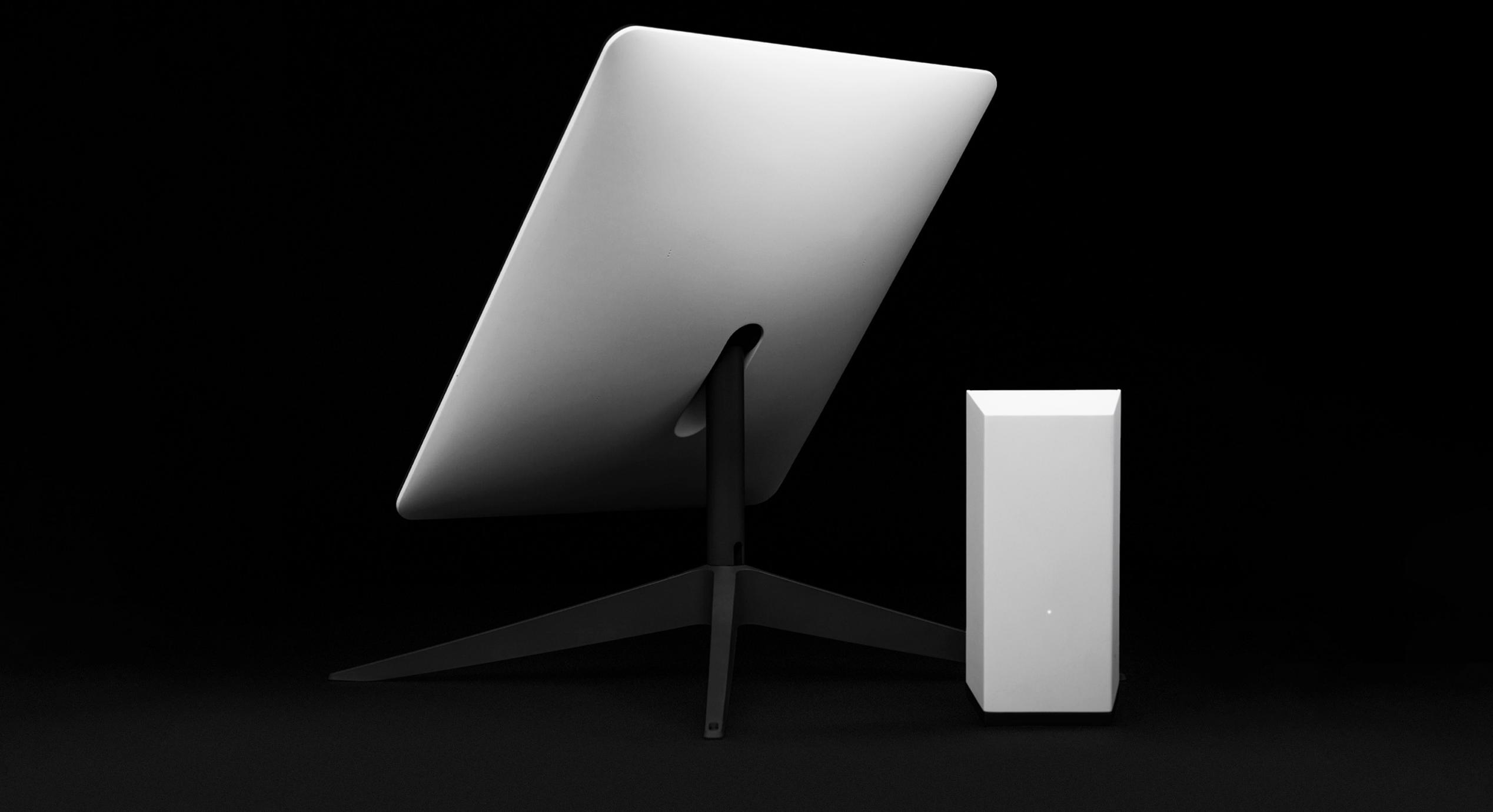
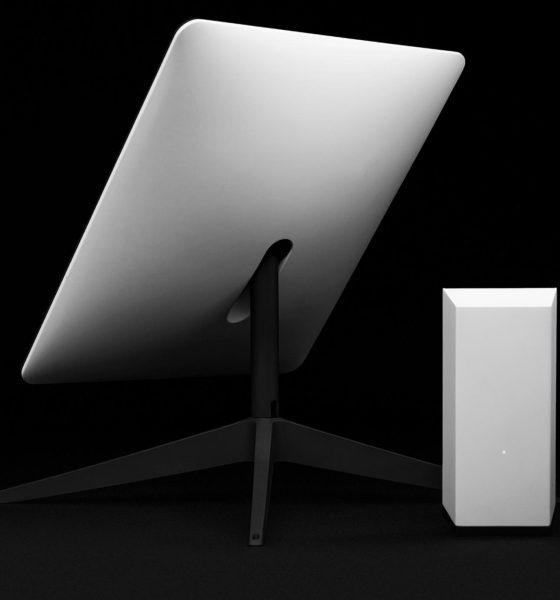
News
FCC reversal $885.5M Starlink award has no lawful basis, commissioner says
A Federal Communications Commission (FCC) commissioner, Brenden Carr, called out the FCC for denying Starlink’s $885.5 million infrastructure award. The FCC said that funding the network of Starlink satellites wouldn’t be the best use of limited broadband subsidies.
FCC Chairwoman, Jessica Rosenworcel said that the technology had real promise but that the FCC couldn’t afford to “subsidize ventures that are not delivering the promised speeds or are not likely to meet program requirements.”
Commissioner Carr highly disagreed with this move and shared his thoughts about it on Twitter. He said that its decision to reverse the $885 million infrastructure award was not only concerning, but done without legal justification. And it would leave rural Americans “waiting on the wrong side of the digital divide.”
The FCC’s 2020 award to Starlink secured a deal for the delivery of high-speed Internet service to 642,925 unserved locations.
But the FCC just vaporized that commitment and replace it with… nothing. That’s a decision to leave families on the wrong side of the digital divide.
— Brendan Carr (@BrendanCarrFCC) August 24, 2022
In his statement, Commissioner Carr said that he was surprised to find out by an FCC press release that reversed the $885.5 million infrastructure award that SpaceX had won in 2020. He said that this move mirrored the agency’s “broader set of missteps by costing taxpayer dollars while leaving rural communities behind.”
Commissioner Carr wrote,
“As an initial matter, this is a very curious outcome because the reasons the agency offers for backtracking on this infrastructure decision do not withstand even casual scrutiny. Indeed, the reversal constitutes clear error and plainly exceeds agency authority.”
“First, the FCC’s announcement claims that the agency is acting to ‘avoid extensive delays in providing the needed service to rural areas.’ Yet, that is exactly the outcome that this decision ensures. The FCC’s 2020 award to Starlink secured a commitment for the delivery of high-speed internet service to 642,925 unserved rural homes and businesses across 35 states. By reversing course, the FCC has just chosen to vaporize that commitment and replace it with…nothing. That’s a decision to leave families waiting on the wrong side of the digital divide when we have the technology to get them high-speed service today.”
Commissioner Carr also said that the agency’s excuse that Starlink’s technology is “risky” and “still developing, has no bearing. He noted that the FCC’s own speed testing data shows that Starlink’s speed has “increased significantly year over year.”
He further called the skepticism that the FCC showed “odd” since it is in “direct conflict with the confidence expressed by the other components of the federal government–including the Air Force, which just inked a nearly $2 million deal with Starlink to deliver high-speed Internet service to military bases.”
The FCC criticized Starlink’s pricing and Commissioner Carr also brought this up. “The agency cites Starlink’s price point in denying it this universal service award. Yet right now, the FCC is providing universal service awards for far slower internet services that cost consumers far more.”
Residents in Napakiak, Alaska, the Commissioner said, are paying hundreds of dollars every month for services supported by the FCC’s universal service awards that deliver “speeds less than 1/10th of Starlink’s.”
Commissioner Carr also said that the denial was without a lawful basis since “the 2020 Commission-level decision governing the Starlink award and similar awards did not authorize staff to deny a winning bid based on equipment price point considerations–let alone based on an arbitrary one selectively applied to one winner. As such, the denial here is without a lawful basis.”
Commissioner Carr is also concerned that the FCC’s decision will hurt taxpayers.
Your feedback is important. If you have any comments, or concerns, or see a typo, you can email me at johnna@teslarati.com. You can also reach me on Twitter @JohnnaCrider1

News
Tesla launches new affordable Model Y configuration in the U.S.
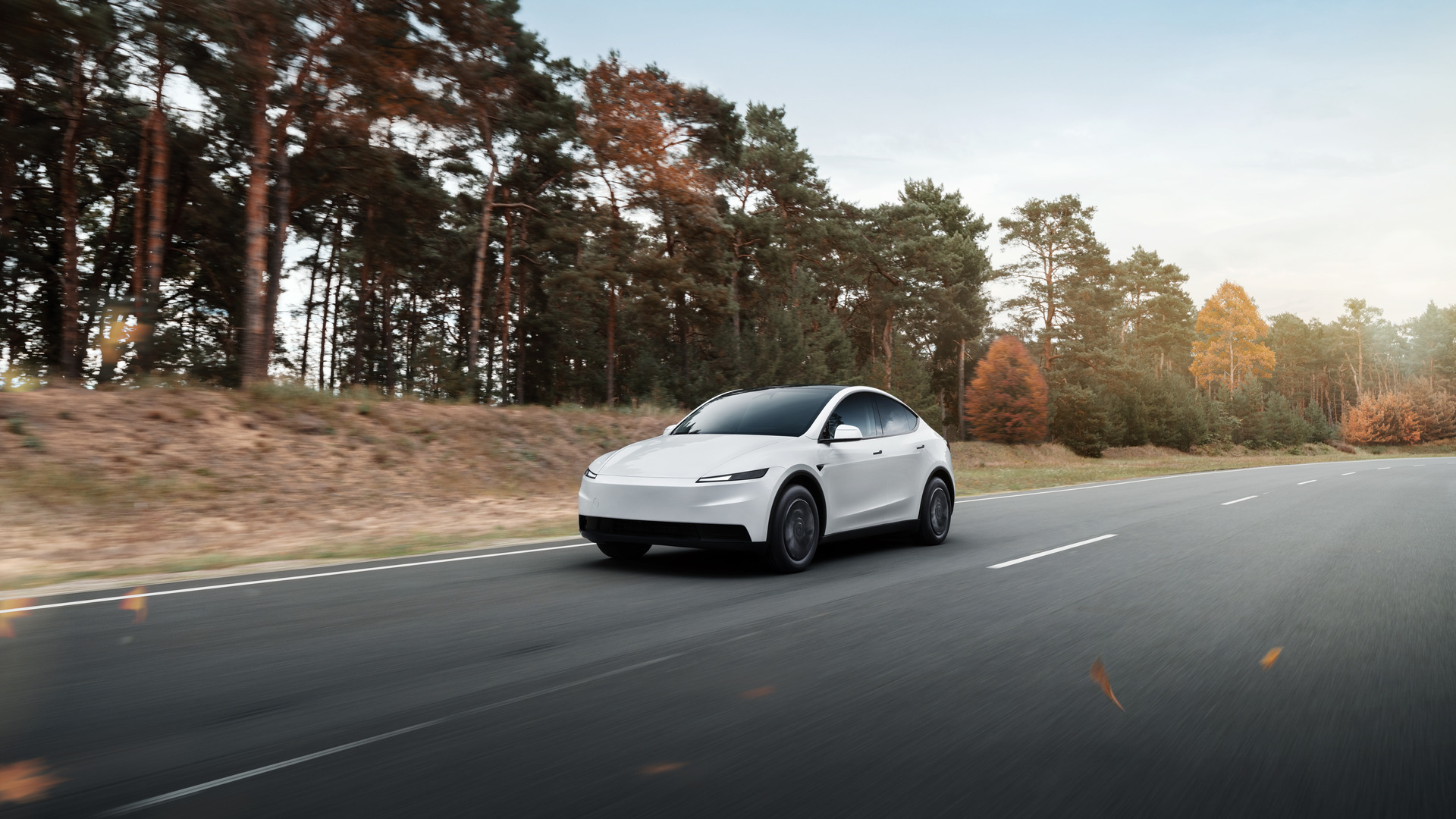
Tesla has launched another new affordable Model Y configuration in the United States, now adding a fifth version of the all-electric crossover to its lineup, diversifying the car’s options and giving consumers more choices at the time of purchase.
Tesla launched the Model Y All-Wheel-Drive on Monday night, pricing it at $41,990. It features 294 miles of range, a 125 MPH top speed, and a 0-60 MPH acceleration rate of 4.6 seconds.
The vehicle is the second most-affordable configuration of the Model Y, only eclipsing the Model Y Rear-Wheel-Drive, which is priced at $39,990.
The move to expand the Model Y lineup comes just a week after CEO Elon Musk confirmed the company would remove the Model S and Model X from production, making way for manufacturing of the Optimus robot at the company’s Fremont, California, factory.
🚨 Tesla has just launched the Model Y All-Wheel-Drive, a new configuration, in the U.S. for $41,990
It has 294 miles of range, a 4.6s 0-60 MPH acceleration rate, and a 125 MPH top speed pic.twitter.com/cyd81m26vB
— TESLARATI (@Teslarati) February 3, 2026
The Model Y All-Wheel-Drive fits the bill of the “Standard” offerings of the vehicle that Tesla launched last year. It is void of many of the more luxurious features, which are available in the “Premium” trim levels, available in Rear-Wheel-Drive, All-Wheel-Drive, and Performance.
The differences between the Standard and Premium configurations can be found in the video below:
@teslarati There are some BIG differences between the Tesla Model Y Standard and Tesla Model Y Premium #tesla #teslamodely ♬ Sia – Xeptemper
With five configurations now available in the Model Y, it certainly seems as if Tesla is attempting to get the vehicle available in more options than ever before.
With the Model S and Model X being removed from production due to their irrelevance to the future and Tesla’s focus on autonomy, diversifying the Model Y portfolio seems to align with the idea that the company is okay with making more variations of its most popular car.
Tesla Model Y Standard: first impressions from a Premium owner
Removing the Model S and Model X and replacing them with a new Model Y configuration is not exactly what fans have been wanting; many have been wondering what Tesla will do to replace the need for a bigger SUV for large families.
Nevertheless, Tesla’s relentless attitude toward solving autonomy and its preparation to launch a self-driving ride-hailing service seem to fit the bill for this move. Soon, it will be the Model 3, Model Y, and Cybercab playing the main parts of this autonomous future. The Cybertruck will be sticking around for other things, like local hauling.
Elon Musk
SpaceX officially acquires xAI, merging rockets with AI expertise
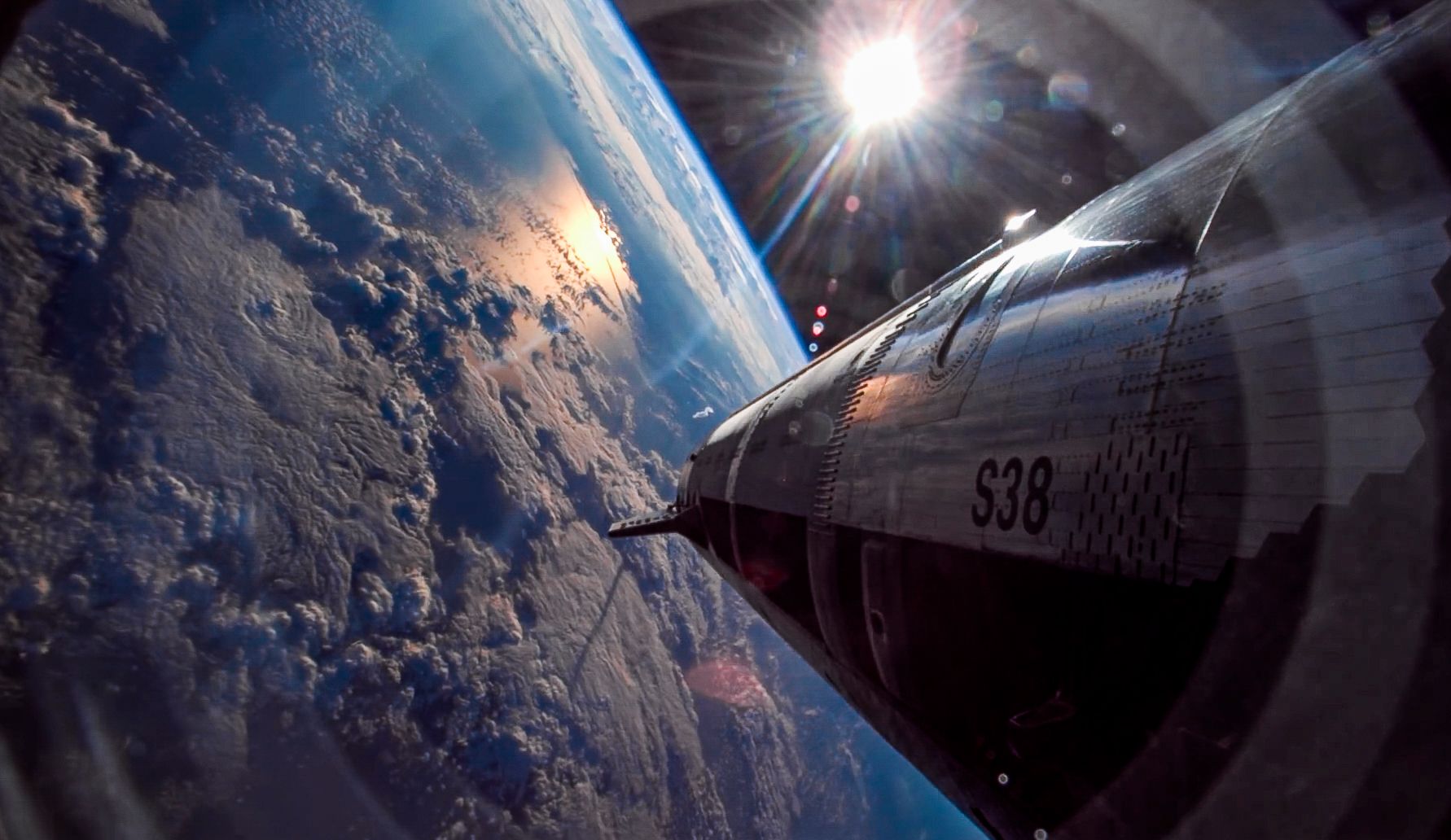
SpaceX has officially acquired xAI, merging rockets with AI expertise in what is the first move to bring Elon Musk’s companies under one umbrella.
On February 2, SpaceX officially announced the acquisition of xAI, uniting two powerhouse companies under a single entity, creating what the space exploration company called in a blog post “one of the most ambitious, vertically integrated innovation engines on (and off) Earth.”
🚨 BREAKING: Elon Musk has posted a new blog on SpaceX’s website confirming the acquisition of xAI pic.twitter.com/TFgeHGMpXc
— TESLARATI (@Teslarati) February 2, 2026
The deal will integrate xAI’s advanced AI capabilities, including the Grok chatbot and massive training infrastructure, with SpaceX’s rocket technology, Starlink satellite network, and ambitious space exploration goals.
The acquisition comes at a pivotal moment: xAI is valued at around $230 billion as of late 2025, and has been racing to scale AI compute amid global competition from companies like OpenAI, Google, and Meta. Meanwhile, SpaceX, which was recently valued at $800 billion, is facing escalating costs for its multiplanetary ambitions.
By combining forces, the merged entity gains a unified approach to tackle one of AI’s biggest bottlenecks: the enormous energy and infrastructure demands of next-gen models.
Musk wrote in a blog post on SpaceX’s website that:
“In the long term, space-based AI is obviously the only way to scale. To harness even a millionth of our Sun’s energy would require over a million times more energy than our civilization currently uses! The only logical solution therefore is to transport these resource-intensive efforts to a location with vast power and space. I mean, space is called “space” for a reason.”
Musk details the need for orbital data centers, stating that his estimate is that “within 2 to 3 years, the lowest cost way to generate AI compute will be in space.
This cost-efficiency alone will enable innovative companies to forge ahead in training their AI models and processing data at unprecedented speeds and scales, accelerating breakthroughs in our understanding of physics and invention of technologies to benefit humanity.”
SpaceX recently filed for approval from the FCC to launch up to one million solar-powered satellites configured as high-bandwidth, optically linked compute platforms.
These facilities would harness near-constant sunlight with minimal maintenance, delivering what the company projects as transformative efficiency.
Musk has long argued that space offers the ultimate solution for power-hungry AI projects. But that’s not all the merger will take care of.
Additionally, it positions the company to fund broader goals. Revenue from the Starlink expansion, potential SpaceX IPO, and AI-driven applications could accelerate the development of lunar bases, as Musk believes multiplanetary life will be crucial to saving civilization.
Critics question the feasibility of massive constellations amid orbital debris concerns and regulatory hurdles. Yet, proponents see it as a bold step toward a multiplanetary computing infrastructure that extends human civilization beyond Earth.
News
Tesla Model Y Performance Review: The Best Trim of the Best Vehicle?
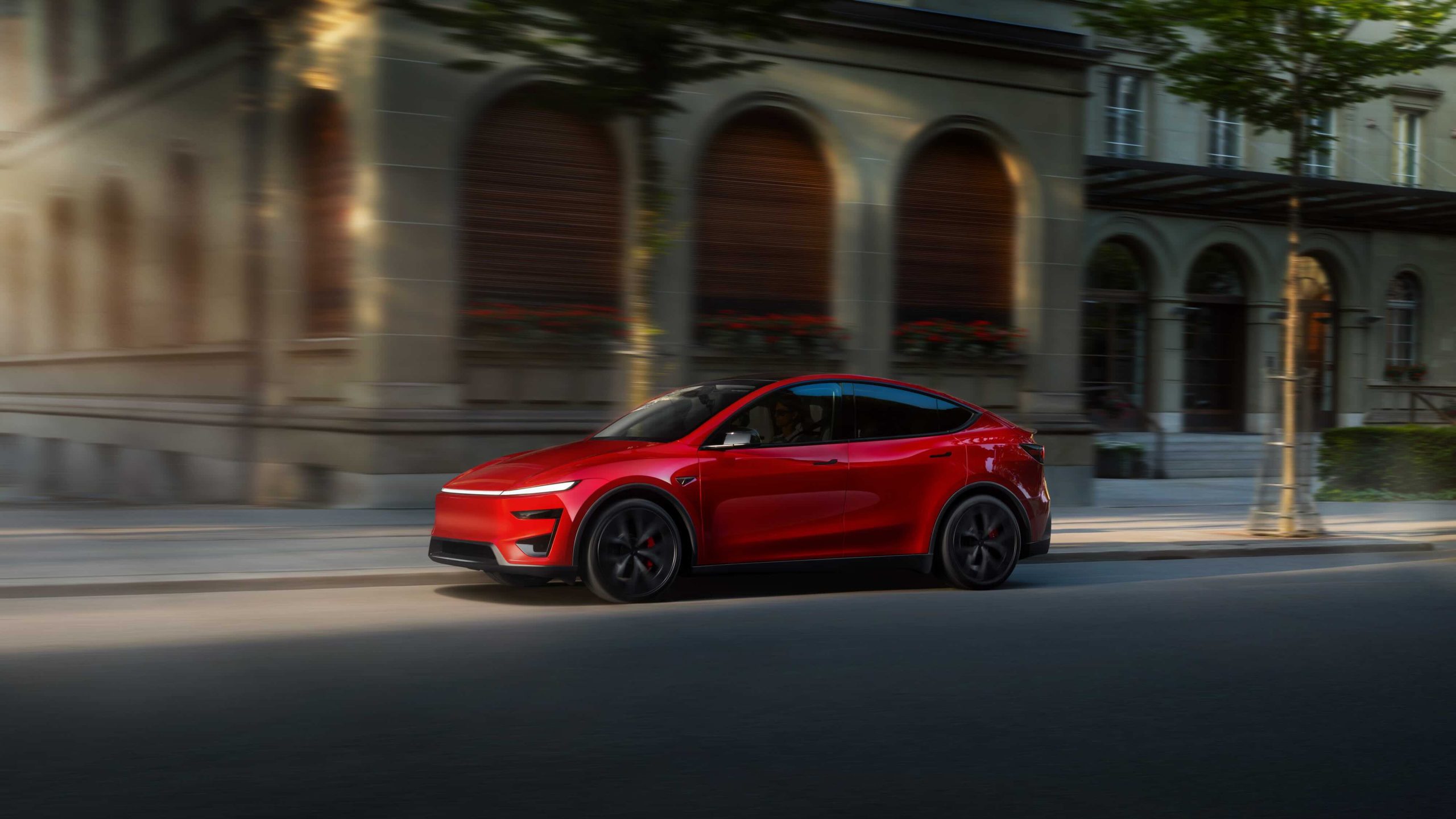
The Tesla Model Y Performance was in my hands for seven days after the company reached out and got me a brand new unit. As a Premium All-Wheel-Drive owner, I was really interested to see if the Performance trim was worth the $11,000 difference, and what I learned might be a surprise.
The only “performance” version of any Tesla vehicle I’ve had the opportunity to have several days with was the Cyberbeast back in June, and a few days with that made me want a Cybertruck more than I already did. It had white-knuckle speed, and as someone who truly loves to drive a larger vehicle, it fit the bill for everything I wanted out of an electric pickup.
We picked up the Tesla Model Y Performance yesterday!
We have a whole SEVEN days with it and we want to do anything you’d like us to (within reason) with it!
Let us know below 👇 what you’re interested in knowing pic.twitter.com/BRG9nOSwGW
— TESLARATI (@Teslarati) January 20, 2026
With that past experience, I was truly excited to try the new Model Y Performance, especially considering I own a Model Y already, and after six months of ownership, it has truly won me over as the best car I’ve ever owned. Although my 2008 Ford Escape Hybrid is a close second, mostly due to nostalgia and it being my “dream car” as a kid in high school at the time, the Model Y is unequivocally better, obviously. It’s hard to shake the feelings of your first “nice” car; I think we could all relate to that in a way.
First charge in the Tesla Model Y Performance!
This is a v2 Supercharger, so not quite as fast as what we’d like, but it will do for now. pic.twitter.com/Akyb2BLMcS
— TESLARATI (@Teslarati) January 21, 2026
Before I even picked up the Model Y Performance, I was expecting a handful of things: better performance, better handling, more comfortable seats, and a thirst for spirited driving on the windy backroads of Southern Pennsylvania. Admittedly, a snowstorm disrupted a lot of my testing, but I was still able to have some fun in the car.
With that being said, my thoughts are sure to potentially ruffle some feathers.
First Impressions of the Tesla Model Y Performance
I picked up the Model Y Performance on January 19 and had it for one week. The Ultra Red paint with the White interior option was a great look, and it was fun to have a car with that look, considering my Model Y is Black on Black.
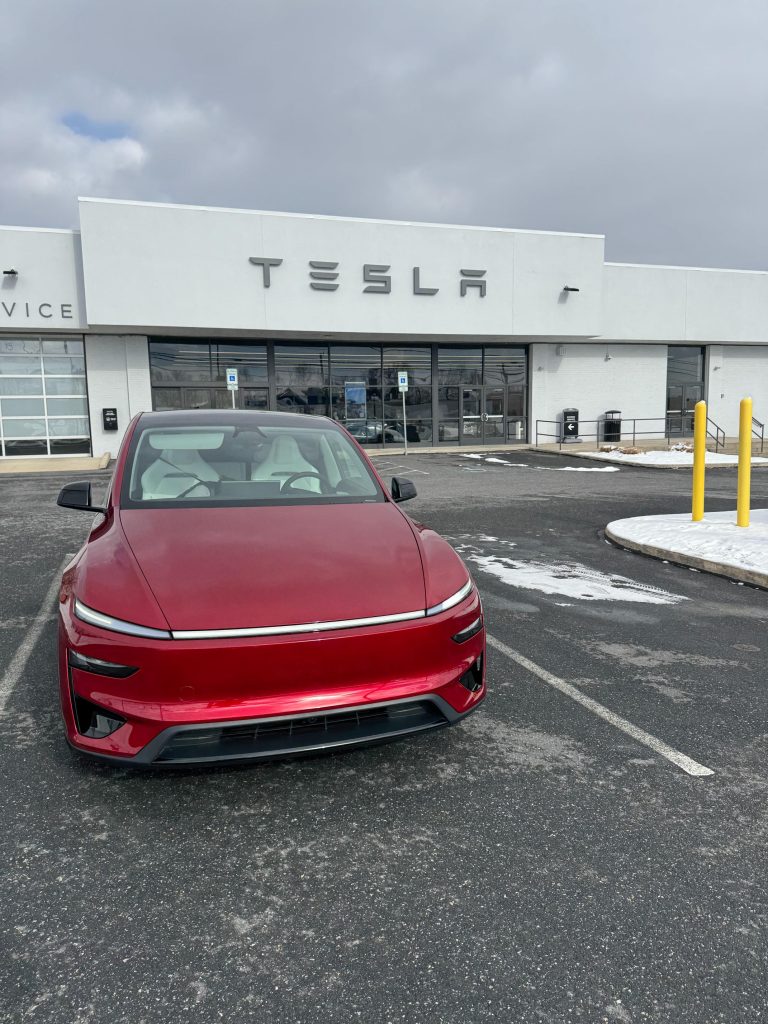
One thing that is really interesting and somewhat surprising is that Tesla hasn’t adjusted the fact that the Ultra Red is a different shade than the Performance brake calipers. Additionally, the rear light bar, which signals braking, is a different shade of red than the car and the brake calipers.
This was something that the Tesla Showroom employees pointed out to me, and, just like they said, I’ll never be able to not see it.
Interior Quality
The first thing I noticed was the Performance seats, which are geared to hug you a tad more and keep you intact during spirited drives. They were, without a doubt, more comfortable than the seats in my Premium AWD.
Interestingly, when I gave this opinion on X, some Performance owners said that the seats were less comfortable and, on longer drives, I’d feel it. My Fiancè and I drove about 120 miles in the car that weekend, and we had no complaints. They were supremely comfortable, and we both really enjoyed them, almost to the point that we’d rather have those seats than the ones in the Premium AWD.
🚨 Tesla Model Y Performance White Interior is 🔥
This seriously might be the best Tesla out there pic.twitter.com/BnSe1GJqqi
— TESLARATI (@Teslarati) January 22, 2026
Additionally, the center screen is slightly larger, but not to the extent that I had really noticed any true difference. In the new Model Y for 2026, the screen is the same size as the one in the Performance trim at 16 inches.
It was previously 15.4 inches.
Some other changes include Performance pedals that are made of what appears to be a stainless steel alloy and Carbon Fiber accents on the doors and dash. Other than that, there are no significant differences; it’s very similar to the other Premium trims of the Model Y. The big difference from an interior standpoint is simply the front seats.
Exterior Differences
Tesla used a lot of different techniques to help improve performance and aerodynamics, including a carbon fiber spoiler and rear diffuser, both of which help with air displacement and improve handling, range, and overall performance.
These additions are clean and give the car a sporty look, perfectly catered to the aesthetic Tesla was obviously going for with the car. I’ve already mentioned the brake calipers, which are an awesome touch, but the offsetting tones of red between them and the paint are a bit displeasing to the eye. I hope this is something that is resolved, but it isn’t completely necessary, nor a priority.
The Nitty Gritty – Ride Quality and Performance
With all the changes from an aesthetic standpoint, including the ones that are geared toward improving performance, the real indicator of whether this trim is worth the extra $11,000 is simple: Is it faster and more fun to drive than the Premium All-Wheel-Drive?
I’m going to break that down here:
Speed and Acceleration
There is a slightly noticeable difference in acceleration, as the 4.6-second 0-60 MPH on the AWD is 1.3 seconds slower than the 3.3-second rate on the Performance. Although that sounds like a decent difference, the big change I noticed was the sound. In the Performance, you can really hear those motors hum, which was a nice touch and really interesting and fun to experience.
It was definitely quicker than my AWD, but I think I really expected to be thrown back into my seat like I was with the Cyberbeast, which features a 2.6-second 0-60 MPH acceleration rate. That was truly a massive difference that anyone can really feel. The 1.3-second difference between the AWD and Performance was, in a way, underwhelming.
I was not disappointed with it, but I really hoped to feel that same rush of adrenaline I had with the Cyberbeast. I think I’m just so used to the acceleration at this point that it does not “wow” me any longer. At the time of the Cyberbeast Demo Drive, I was still driving a gas car.
The Performance, like the AWD, is very capable. It’s great for merging on the highway and getting into a tight window when traffic is heavier. It’s great for taking some quicker drives, and it’s a lot of fun to take out on the road. By no means am I disappointed with it, but I will say maybe my expectations were a tad too high.
Handling
This is where I will say I was sort of disappointed, because I have heard from many people that the suspension is better in the Model Y Performance compared to the All-Wheel-Drive.
I didn’t really feel like it was “better,” but the same, which is still an absolutely amazing ride experience. My AWD is great for tight turns at increased speeds, where I felt the difference was in the seats, as those Performance ones truly did seem to “hug” me more and keep me more stable.
The Performance trim features adaptive suspension, lower/stiffer springs, and larger wheels, all of which are meant to improve handling. I’m not sure if it is simply because I didn’t get to push it as much as I wanted to due to weather, but I felt like the feel of the ride was really similar to my AWD. I had no complaints.
Overall Thoughts
The Model Y Performance is definitely a sportier look than the AWD and Standard models, and it definitely has its advantages. I think that it’s a really great car, but I did not feel an incredible number of differences from the AWD.
🚨 ONE WEEK with the Tesla Model Y Performance: Review and Initial Thoughts
We didn’t get to have as much fun as we wanted in the MYP due to the snow storm, but we were able to give some initial thoughts on the car with the little bit of reasonable weather we had pic.twitter.com/C75WQMNHKO
— TESLARATI (@Teslarati) January 27, 2026
There was a lot to love: the seats, the look, the acceleration. The latter is something that is definitely great if you plan to take your car to a track, but for public roads, it’s not something that is a substantial “need.” When I pushed it on a road local to me and posted a video of it, the commenters were sure to tell me I was going too fast.
I want to be clear that I have zero complaints about the Model Y Performance, and if it were to have come out ahead of me getting my AWD, I probably would have entertained the idea if I could have made the numbers work.
The Model Y, from Standard to Premium, is a great car in every sense of the word. The ride quality is great, the build quality is excellent, and the interior and exterior features, as a whole, make it the best car in the world (to me).








